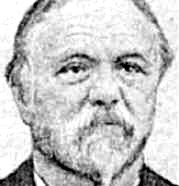| Profile | Major Works | Resources |
Georges Sorel, 1847-1922

Theorist of French revolutionary syndicalism.
Georges Eugène Sorel was the sometimes incomprehensible spirit behind the French "syndicalist" movement of the turn of the centrury. The syndicalist movement sparked in 1895 in an attempt to recapture the initiative away from reformist state socialists and bring the workers' movement back to its roots in the revolutionary anarcho-socialism of Proudhon and Bakunin that had so shaken the world back in the 1840s and 1850s.
Although he claimed himself to be a Marxian, Sorel held a deep suspicion for "armchair socialists", particularly those who mumbled about the inevitability of "progress". Instead, Sorel advocated massive general strikes and worker action -- not for the small concessions from employers those might bring, but rather as a way of continuously disrupting the capitalism industrial machine and thus eventually achieving worker control of means of production. In his most famous work, Réflexions sur la violence, (1908), Sorel emphasized the violent and irrational motivations of social and economic conduct (echoing Pareto in many ways). His identification of the need for a deliberately-conceived "myth" to sway crowds into concerted action was put to use by the Fascist and Communist movements of the 1920s and after.
Georges Sorel himself was a retired engineer of middle class origins when he began writing. He kept himself at an arm's distance from actual sabotage, boycotts and strikes conducted by the syndicalist movement in the early part of the century.
|
Major works of Georges Sorel
|
|
HET
|
|
Resources on Georges Sorel
|
All rights reserved, Gonçalo L. Fonseca
